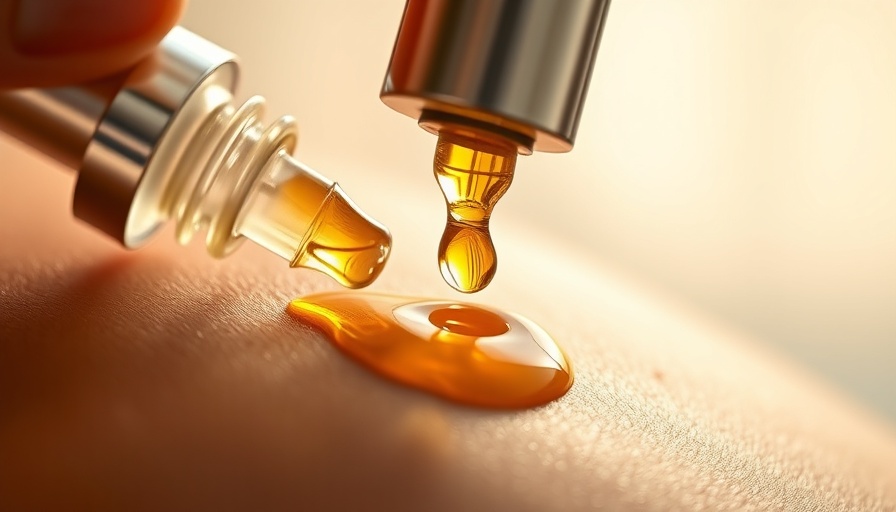
Are You Falling for Overhyped Skin Care Trends?
In the ever-evolving world of beauty, new ingredients are introduced every year, promising everything from radiant skin to eternal youth. While the excitement surrounding these claims can be tempting, not all trendy ingredients hold their weight in effectiveness. As a group of prominent dermatologists and cosmetic chemists point out, some are more about marketing than actual benefits. Here’s a closer look at six skin care ingredients you might want to skip this year.
1. Apple Stem Cells: A Stretch of Reality
Apple stem cells have been touted as a revolutionary anti-aging ingredient that claims to mimic the capabilities of human skin stem cells. Yet, experts like cosmetic chemist Ginger King assert that "these claims are mostly hype." Instead of spending on these luxury products, consider reaching for established moisturizers like hyaluronic acid and ceramides that truly support skin hydration.
2. 24K Gold: All That Glitters Isn't Gold
For a while, gold-infused skin care products were marketed as the ultimate luxe treatment, promising miracle anti-aging benefits. However, as dermatologist Valerie Callender points out, the science just isn’t there. No real data substantiates these claims. Rather than splurging on gold, invest in science-backed ingredients such as vitamin C or niacinamide for brighter, healthier-looking skin.
3. Snail Mucin: Slick but Not Superior
A staple of Korean beauty, snail mucin is often praised for its hydration and skin-repairing abilities. But is it really better than traditional moisturizers? King remarks that while it does provide hydration, similar results can be achieved with other ingredients like glycerin. If you prefer to skip the ‘ick’ factor, lighter solutions can do the job.
4. CBD in Skin Care: Promise or Pitfall?
The introduction of CBD to skincare came with claims of powerful anti-inflammatory properties. However, dermatologist Joel Schlessinger remains skeptical about the data backing this ingredient. Until more conclusive research emerges, consider using proven soothing alternatives like colloidal oatmeal or green tea extract instead.
5. Magnetic Masks: Merely a Fad?
Once regarded as a game-changer in skin care, magnetic masks promised therapeutic benefits. However, aesthetician Jordan Samuel has noticed that they often fail to deliver long-term results. It might be a better choice to invest in nurturing masks that contain enriching ingredients.
6. Bee Venom: Buzzing Risks with Limited Benefits
Marketed as a natural Botox alternative, bee venom claims to have anti-aging effects. Yet, the potential for allergic reactions raises concerns, as noted by King. Instead, opt for safer and tested anti-aging ingredients like peptides or retinol to achieve youthful skin without the sting of risk.
Why Skipping These Ingredients Matters
Choosing skin care products wisely is not just about avoiding buzzwords; it is about understanding what works. By focusing on proven ingredients, consumers can navigate the misleading marketing, ensuring their routines contribute positively to their skin health. Experts emphasize the significance of knowing what’s in your products—reading labels can protect your skin from irritants and harmful substances.
Making Informed Choices for Better Skin
Staying updated on skin care trends can feel overwhelming, especially with the plethora of products on the market. However, informed consumers are empowered ones. Avoid falling for marketing traps by prioritizing effective ingredients and questioning the hype. Your skin will thank you for the wise choices.
Take Action Towards Healthy Skin
Be proactive about your skin health. Familiarize yourself with key ingredients and choose quality over quantity when it comes to skincare products. Always consult with a dermatologist if you are uncertain about the products you use—or if you're considering new treatments or procedures.
 Add Row
Add Row  Add
Add 




Write A Comment